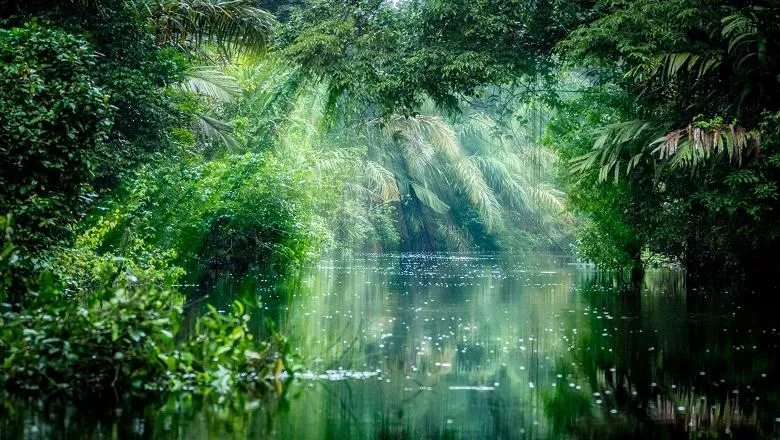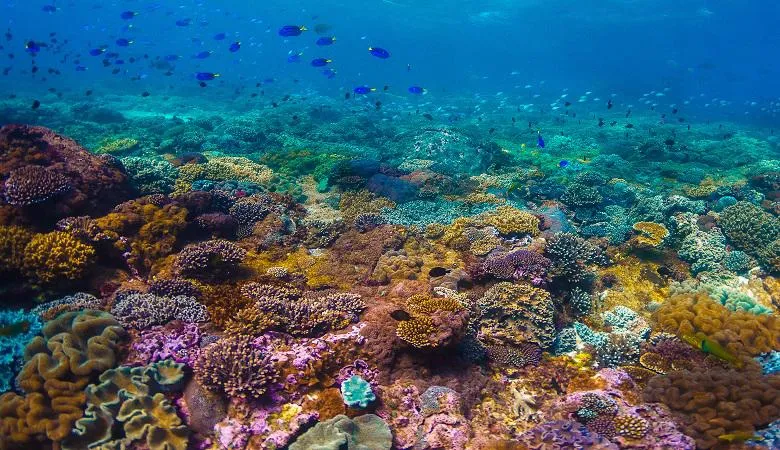As the first comprehensive, global-scale classification of the world’s ecosystems, this work will provide needed focus for efforts for improve environmental sustainability and conservation of our natural world.
Dr Michael Chadwick, Senior Lecturer in Physical and Environmental Geography
12 October 2022
World first as Earth's ecosystems classified in global study
The entire planet’s ecosystems have been classified for the first time ever as part of a cross-disciplinary global study with input from an environmental expert at King’s.

In a study published in Nature today, researchers have developed a comprehensive classification of the Earth’s ecosystems across land, rivers and wetlands, and seas, enabling more coordinated and effective biodiversity conservation of animals, plants and microorganisms needed to support all life, including humans. The research explores the science that underpins the typology, and how it can help achieve objectives in global policy that flow to individual countries.
Dr Michael Chadwick from the Department of Geography at King’s was involved in the project alongside UNSW Sydney and Arizona State University, as part of the PLuS Alliance. The PLuS Alliance combines the strengths of the three leading research universities on three continents to solve global challenges and increase access to world-class higher education in high-need areas.
Other contributors included the International Union for Conservation of Nature (IUCN), which comprises about 1,400 member organisations; the IUCN Commission on Ecosystem; and more than 100 ecosystem scientists across the world.
As an experienced researcher in the field of aquatic ecology, Dr Chadwick supported the development of aspects of the ecosystem typology related to freshwater and transitional realms. He said: "With the health of ecosystems declining at unprecedented rates, it was immediately evident to me that the goals of this cross-disciplinary project were needed to address these pressing environmental problems.
Ecosystems provide homes and vital life support for all plants and animals, and supply essential ecosystem services that sustain business, culture and human wellbeing. Ten per cent of ecosystems are artificially created and maintained by humans but occupy more than 30 per cent of the Earth’s land surface – what is left is home to 94 per cent of threatened species on the IUCN Red List.
This new global ecosystem typology describes the diversity of tropical forests, big rivers, coral reefs and other ecosystems that have typically been the focus of public attention. But it also includes little-known ecosystems of deep ocean trenches, seamounts, lakes beneath the ice sheets and microscopic ecosystems within rocks.

It allows policymakers and industry to plan their initiatives in full context, while for governments and non-government organisations (NGOs) working in a range of countries, it can inform decisions about how ecosystem protection and restoration efforts can achieve maximum conservation benefit, and where development infrastructure is best placed to minimise impact.
Dr Chadwick was part of an international team that worked with the project leads Professor David Keith and Professor Richard Kingsford from UNSW’s Centre for Ecosystem Science, and Professor Emily Nicholson from Deakin University.
“For the first time, we have a common platform that identifies, defines and describes the full suite of the whole planet’s ecosystems,” said Professor Keith. “It may seem rather odd that we haven’t had this before, but historically scientists have forged advances by working somewhat separately in marine, freshwater and terrestrial ecosystems. This is the first time that all of this detailed knowledge has been brought together into a single framework taking advantage of common theory across the disciplines.”
Professor Kingsford said: “It’s very hard to see the big picture on a jigsaw puzzle until you have all the pieces in place – and that's what we now have. We have a much more substantial foundation to move ahead with a new era of ecosystem conservation and management policy.”
Professor Nicholson added: “The global ecosystem typology will make it possible to account for ongoing ecosystem change, identify threatened ecosystem types, and plan better preventative action and restoration under a renewed agenda for the CBD.”
Globally, countries coordinate their efforts under the umbrella of the United Nations Convention on Biological Diversity (CBD), which is coming up for renewal at the end of 2022. Delegates from 193 countries will meet in December at the 15th Conference of Parties in Montreal, Canada, to agree on the post-2020 agenda for CBD. Preparations for that meeting indicate a stronger emphasis on ecosystem conservation and management in the coming decades.
